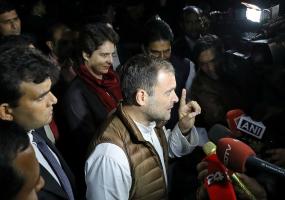Gatekeepers no More
23 Oct 2014
Seminar Report
The PR sector takes great advantage both of the internet and the financial problems today’s legacy media are faced with. ‘People working in public relations no longer need journalists as much. They have been able to use the internet and social media much more extensively and profitably than we have,’ states John Lloyd, who is writing a new RISJ publication on the issue. Through Twitter and Facebook, public relations can now directly address their target audiences. Some corporations have already been doing this successfully. Austrian caffeine drink producer Red Bull not only runs its own magazine and TV channel, but also associates itself closely to extreme sports. Moreover, Lloyd sees a trend towards large corporations “politicising” themselves. CEOs nowadays have to be good media performers, attend TV discussions or write comments in newspapers. The flipside of social media is that people in the public eye can be extremely vulnerable – here PR companies tender to protect their reputation. Thus PR professionals, many of whom are former journalists, have to be storytellers more than ever before. One of the “biggest triumphs” of public relations is, in the view of John Lloyd, the British royal family. But he says that in the future the passing of the crown to Prince Charles is going to be one of PR’s biggest challenges. When it comes to society news, it is not uncommon that specialised celebrity agencies themselves produce stories about their clients and directly put it out in (tabloid) newspapers. Often the readers cannot see the source for the story. Another trend in political and in corporate communication is ‘individualization’. Thanks to data gathering politicians as well as companies are much more able to speak to niches rather than the masses. ‘They know much more accurately where to put their efforts,’ says Lloyd. Within the media, the discrete walls between editorial, advertising and marketing are coming down. As large newspapers come under pressure, they tend to become more open to offers from PR companies - like going on paid business trips. ‘Yet journalism has to be independent, if it wants to survive’, observes Lloyd.
Written by Sonja Gruber.
John Lloyd, Senior Research Fellow at the Reuters Institute, spoke at the Business and Practice of Journalism seminar at Green Templeton College on Wednesday 22 October 2014.




